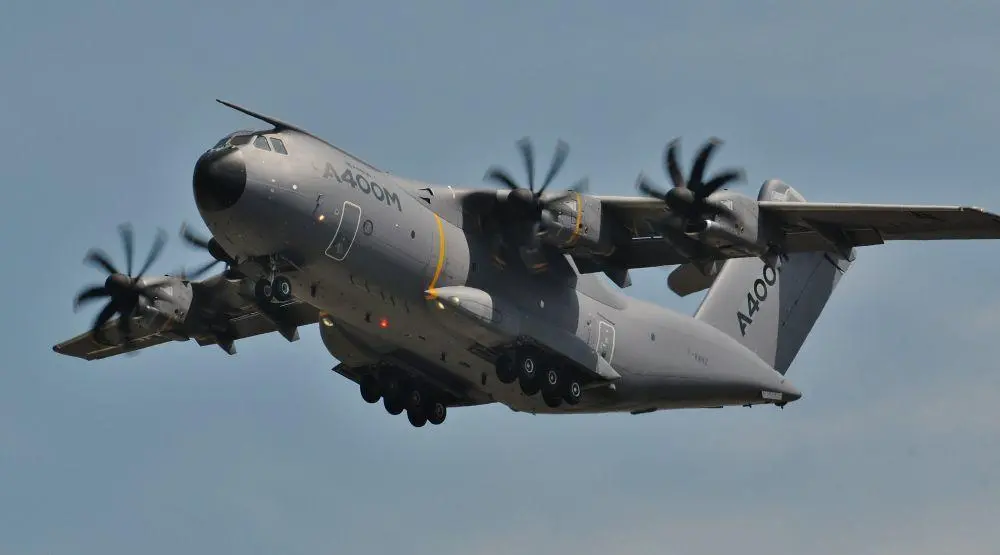Comments (1)
Bianca Oliveira
The A400M is a disaster for Airbus


Airbus expect 2017 to be a challenging year, with weak cash flow and program hurdles to cross, but above the previous one's levels. The aircraft’s troubles overshadowed the rest of the group’s performance, where the overall result was ahead of expectations.

The European aerospace group is demanding new concessions from government customers to help cap losses on its troublesome A400M military transport aircraft after it was forced to take a €2.2bn hit to 2016 profits to cover the costs of further delays and technical problems. Airbus is still paying for the original sin of signing a commercial contract for a military aircraft, in which government customers make the rules and the company took on all the risk. Tom Enders, the firm's CEO, claims that the firm needs to work much closer together and re-engage in negotiations to mitigate the situation. He also added that the European engine consortium, Europrop International — made up of the UK’s Rolls-Royce, Germany’s MTU, the French Safran and Spain’s ITP — would be expected to make a big contribution to capping the extra costs.
The A400M was an ambitious programme, opting to develop one of the world’s most powerful turboprop engines and designed to carry more payload than older transport aircraft such as the C130, while landing on any terrain. However, problems first emerged in 2009 with the engine’s software, sparking the customer bailout. In 2014, the group signalled new setbacks in the final assembly line in Spain, and in May of that year an A400M crashed outside Seville while on a test flight, killing four crew members. In 2016, Airbus reported free cash flow before one-off gains from disposals and excluding customer financing of €1.4bn, up from €1.3bn last time. Earnings adjusted for one-off charges improved 2% in the civil aircraft division, accounting for two-thirds of revenues, but the helicopter unit saw an 18% fall. The defence and space division also suffered a 5% drop in adjusted earnings.
The company's earnings fell last year but came in just above expectations as the company booked further charges on production of its A400M military transport aircraft. It is important to state that back in 2010, Mr Enders, threatened to cancel the aircraft if governments did not contribute to a bailout after costly engine problems. Indeed, new measures are needed to de-risk the programme. Mr Enders insisted that the European aerospace group wants to avoid the repeat of the €3.5bn bailout agreed by governments in 2010.
The chief executive’s comments came as the European aerospace group’s unadjusted earnings before interest and tax tumbled 44% to €2.3bn, on revenues 3% higher at €66.6bn. Stripping out the impact of the charges, earnings before interest and taxes fell 4% to €4bn. In addition, The A350 needs to fix its supply chain problems, primarily with interiors. The A320neo needs Pratt engine deliveries to stay on schedule, although LEAP deliveries appear solid. Free cash flow is above breakeven in 2016 and slightly higher in 2017, with the real increases in 2018-19. While dividens increased from €1.30 to €1.35 per share, unadjusted earnings per share fell 62% to €1.29.
In the past year, new problems emerged with the propeller gearbox and problems in the supply of business seats and toilets, forcing such frequent maintenance that the aircraft could not be used to its full capability. To overcome the hurdles of the A400M , Mr Enders called for a fresh round of negotiations with the launch customers — Germany, the UK, France, Spain, Belgium, Luxembourg and Turkey — to help allay penalties and damages being imposed because of delivery delays, technical problems and capability shortfalls in the aircraft. Partner nations indicated that they would be open to discussions with Airbus on negotiating conditions on the contract.
Airbus is not looking at additional funding, but they are operating in an environment that is heavily penalising them. Customers keep cash back. Some put liquidated damages on top because they have delays in delivery. All that adds to a serious financial burden. With the latest €1.2bn charge in the fourth quarter, added to the €1bn taken in the first half, Airbus has taken a total hit to profits of about €7bn over the past decade on a fixed price contract originally set at €20bn.
The A400M is a disaster for Airbus ![]()
Badr Berrada is a tech entrepreneur & international best-selling author. As a Founder & CEO of BBN Times, he manages a team of more than 150 renowned industry experts. He has been featured in renowned publications such as Forbes Magazine, Business Insider, Yahoo! News, Thrive Global, Irish Tech News, Khaleej Times, Herald-Tribune, Pulse Ghana, le360 and IdeaMensch. Badr Berrada is also the CEO of Tech BSB, a consulting platform that provides services in artificial intelligence, cybersecurity, data analytics, cloud computing and sustainability. He co-authored The Growth Hacking Book: Most Guarded Growth Marketing Secrets The Silicon Valley Giants Don’t Want You To Know and The Growth Hacking Book 2 : 100 Proven Hacks for Business and Startup Success in the New Decade. Badr holds a master's degree in Economy, Risk and Society from the London School of Economics and a bachelor degree in Finance from Cass Business School.
Leave your comments
Post comment as a guest